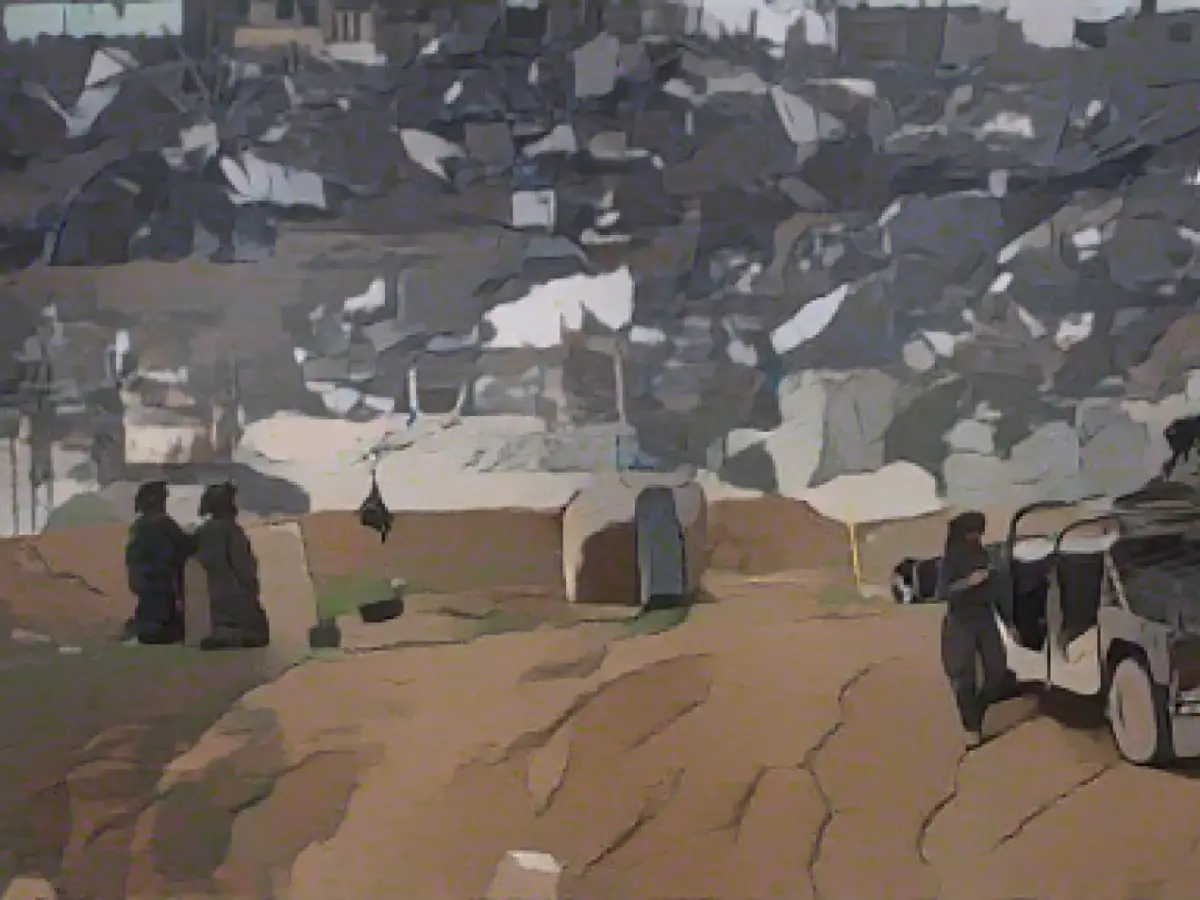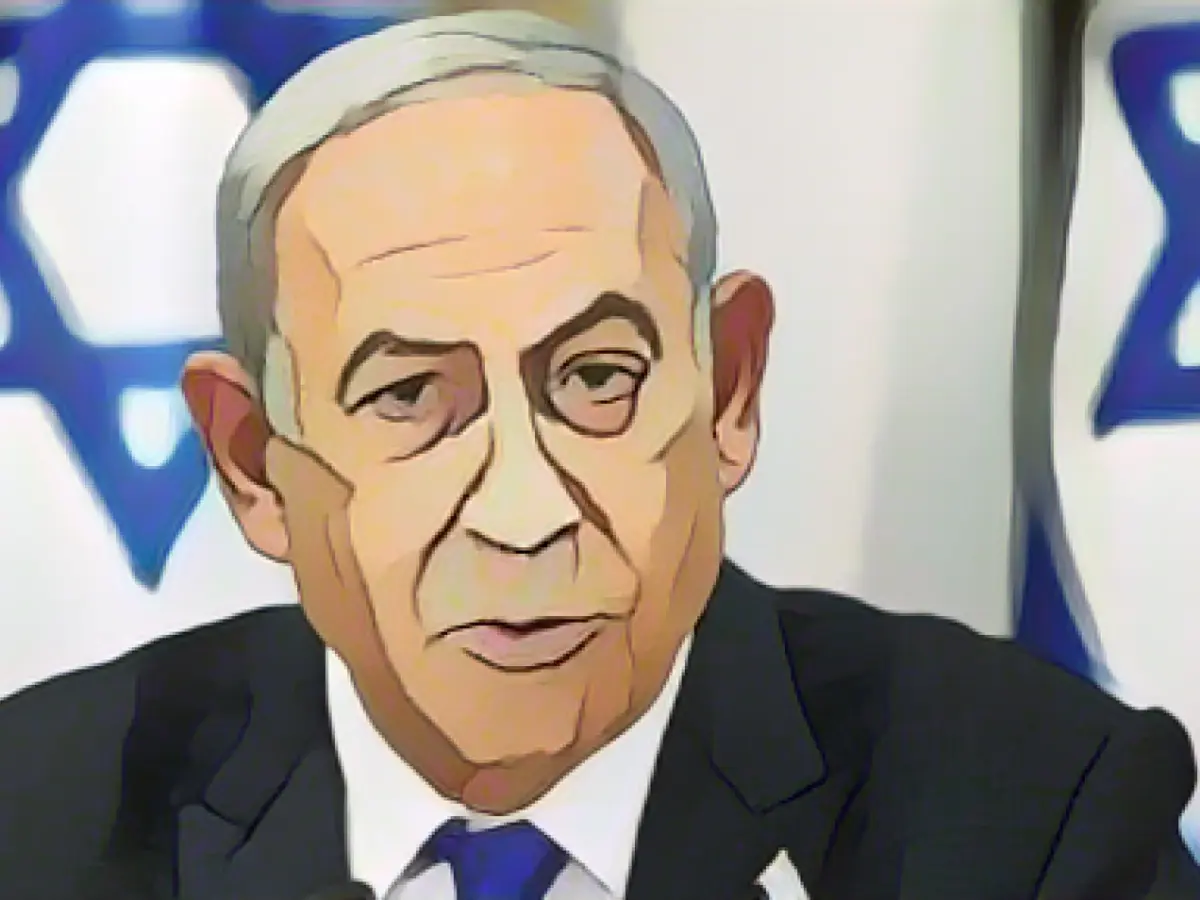Middle East Conflict Updates: Tests on Hamas Tunnels Amidst UN Call for Ceasefire
As the United Nations General Assembly calls for an urgent halt to the violence in Gaza due to the dire humanitarian situation, the Israeli military is conducting tests to flood the Hamas tunnels, reports CNN and The Wall Street Journal. This method is being considered as a potential large-scale destruction tactic for Hamas' extensive underground network.
The waters are being pumped into some of the tunnels to determine their vulnerability towards large-scale destruction. However, the ethical implications of this strategy, particularly the potential impact on hostages believed to be hidden within the tunnels, have drawn criticism.
The UN's resolution demanding an immediate ceasefire gained the necessary two-thirds majority, with 153 nations in favor, 10 against, and 23 abstentions, including Germany. Despite its symbolic nature, the UN resolution brings attention to the ongoing conflict.
Israel's Chief of General Staff, Herzi Halevi, previously expressed support for the idea of flooding the tunnels to locate hostages. The Israeli military estimates Hamas' tunnel system to span around 500 kilometers.
In response to questions about the flooding, US President Joe Biden shared his hesitation, noting the claim of no hostages present and expressing concern for every civilian life lost.
The conflict was triggered by a terror attack near the Gaza border, resulting in over 1,200 deaths, more than 850 of whom were civilians, according to Israel. The UN, WHO, and international observers are currently evaluating the situation in Gaza, reporting severe poverty, shelling, and hospital overcrowding.
The German Foreign Office described the UN resolution as a challenging decision, aiming to cease the suffering in both Israel and Gaza. Despite abstaining from the vote, Germany emphasized its desire to support peace and security in the region.
Canadian Prime Minister Justin Trudeau requested a permanent ceasefire in Gaza, expressing his support for Israel's right to defend itself within the bounds of international law.
Unable to verify the death toll and injury counts provided by Palestinian authorities, international observers express concern over the ongoing conflict's humanitarian consequences. These impacts cannot be understated, with reports of homelessness, displacement, and a growing number of children in dire need of mental health support.
CSU leader Markus Söder is scheduled to visit Israel for political talks, aiming to promote peace and calm in the region. As the Middle East conflict continues to evolve, international observers and leaders remain vigilant and prepare for any further developments.
Sources:
Additional Insights:
- Trials on the flooding method have demonstrated mixed results. While the initial attempt to flood the tunnels with seawater failed, the Israeli military subsequently utilized chemical agents to discourage militants from re-entering the tunnels.
- Critics raise concerns about the potential for flooding to exacerbate existing humanitarian issues, including the displacement of families and the possible contamination of water sources.
- Efforts to eradicate Hamas' tunnel network align with Israeli military strategy to dismantle, detect, and defend against terror attacks.
- In an effort to combat underground warfare, researchers have investigated various methods to detect and counteract tunnels, such as electro-magnetic sensors and pressure-sensitive flooring.
- Palestinians have also developed various techniques to fortify and shield their tunnel systems, rendering Israeli countermeasures less effective.
- The ongoing conflict has led to a protracted cycle of violence, causing lasting damage to the economic, social, and political fabric of the region.
- Establishing a just and lasting peace between the Israeli and Palestinian nations continues to be a fundamental global goal, involving political and diplomatic engagement, humanitarian support, and discouraging incitement to violence.
- International law experts stress that the use of even non-lethal weaponry, like gas, must be employed with extreme caution and in compliance with the principles of distinction, proportionality, and precaution.
- Political tensions between Israel and its neighbors, including Iran, Syria, Lebanon, and Egypt, further complicate peace efforts by stoking conflicts related to Israel's military operations in Gaza.
- Multilateral diplomacy, including efforts from the United Nations, European Union, and the United States, continues to seek a resolution to the conflict, emphasizing the importance of dialogue, compromise, and fostering mutually beneficial relationships.








